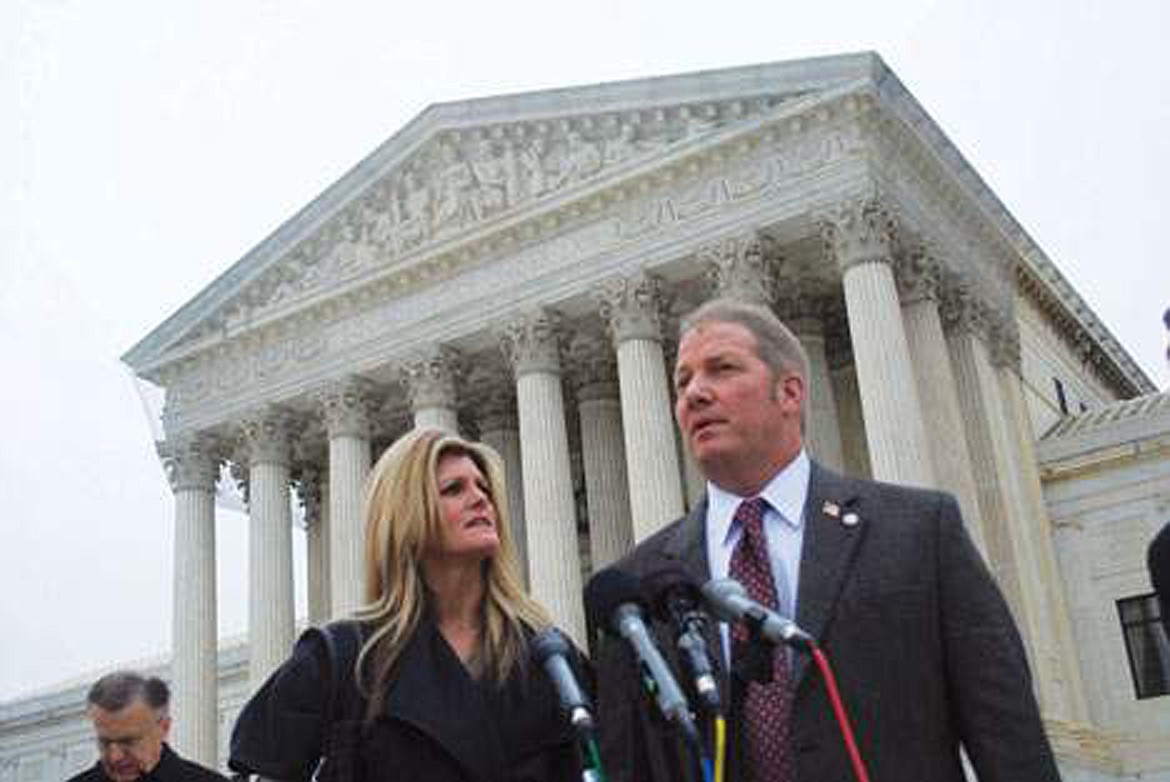Sacketts appeal wetlands ruling on property
Keith Ridler | Hagadone News Network | UPDATED 6 years, 8 months AGO
BOISE (AP) — A northern Idaho couple whose lawsuit against the U.S Environmental Protection Agency was kept alive by a U.S. Supreme Court decision has filed an appeal after losing that lawsuit in U.S. District Court.
Mike and Chantell Sackett on Thursday appealed the case about their future home site being declared “protected wetlands” to the 9th U.S. Circuit Court of Appeals.
The Supreme Court in 2012 reversed lower court rulings prohibiting the couple from challenging the EPA order labeling the site as wetlands.
Major business groups, homebuilders, road builders and agricultural interests joined the Sacketts in urging the court to make it easier to challenge EPA compliance orders.
In March, U.S. District Court Judge Edward Lodge ruled that the Sackett’s property contains wetlands subject to Clean Water Act jurisdiction.
“The Court finds the EPA’s conclusions and determinations were not arbitrary or capricious and are supported by the record,” Lodge wrote.
The couple paid $23,000 for their property in 2005 and decided two years later to build a three-bedroom home. Workers spent three days filling in just under a half-acre (0.2 hectares) of land on the lot near Priest Lake.
The EPA said that the Sacketts illegally filled in most of their 0.63-acre (0.25-hectare) lot with dirt and rocks in preparation for building a home. The agency said the property is wetlands that cannot be disturbed without a permit.
The Sacketts wanted to challenge the EPA order labeling the site as wetlands, but lower courts said they could not do so, a determination the U.S. Supreme Court reversed, allowing the lawsuit to proceed.
The Pacific Legal Foundation nonprofit group that says on its website that it “defends Americans’ liberties when threatened by government overreach and abuse” represented the Sacketts in court and did not return a telephone message Friday seeking comment.
The U.S. Department of Justice, which represents federal agencies in lawsuits, did not respond to an email message seeking comment.
ARTICLES BY KEITH RIDLER
US to bolster firefighter ranks as wildfires burn year-round
BOISE, Idaho (AP) — U.S. wildfire managers have started shifting from seasonal to full-time firefighting crews to deal with what has become a
US to bolster firefighter ranks as wildfires burn year-round
BOISE, Idaho (AP) — U.S. wildfire managers have started shifting from seasonal to full-time firefighting crews to deal with what has become a
Idaho special session for Texas-type abortion law unlikely
BOISE, Idaho (AP) — Idaho lawmakers being called back to the Statehouse to pass a law similar to one in Texas banning most abortions is not likely, top elected officials said Thursday.

